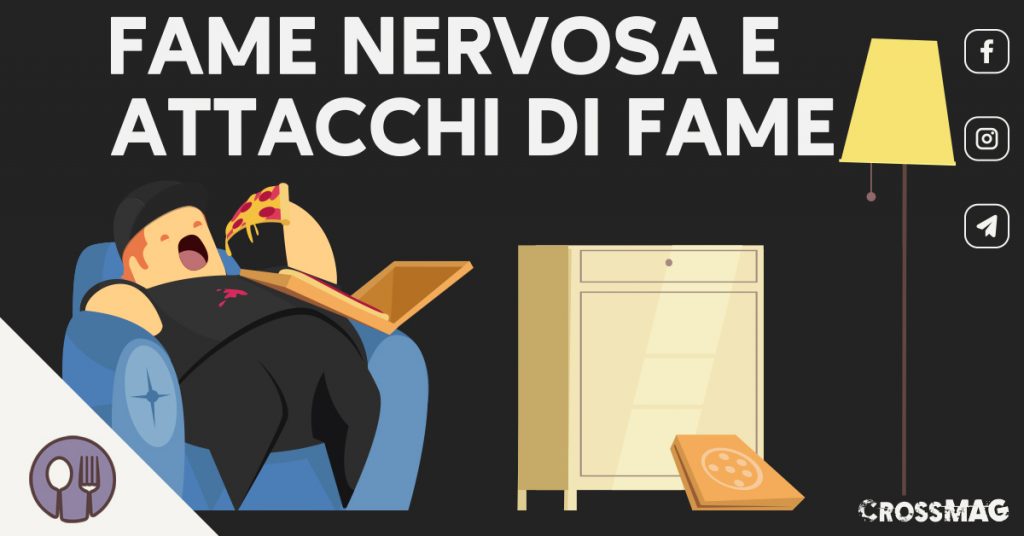La nervous hunger it is an automatic and impulsive mechanism that leads us to eat not in response to a real sense of hunger but to a'emotion, like boredom, sadness, loneliness.
Hunger attacks often come suddenly, when our mind seems to be able to finally rest; since in this period forced rest has become everyone's daily routine, let's see together some tips on how to deal with nervous hunger:
Index
1) Keep our eating habits unchanged
Even if our routine has changed in the past few weeks, we must not put too much pressure on meals: never skip it
Furthermore, we try to balance the macronutrients in each meal: protein, carbohydrates and fats must be present at breakfast, lunch and dinner. Ok a few more whims, but without exaggerating!
2) Keep a food diary
The diary is a self-monitoring tool that we need to associate our
to want to eat to a certain emotion; every time we open the fridge or our locker looking for something good, let's stop for a second, take a piece of paper and try to write what emotion we have in that instant and what thoughts we are doing; this will lead us to find an association between the desire to eat and the emotion that triggers it.
Once identified this association, we will become able to implement distraction techniques: useful and functional strategies and activities to physically move away from the search for food (call a friend, turn on the computer and look for an online course, do yoga, make a video call ...) .
3) Intelligent and aware spending
We often find packets of biscuits at home, packaged snacks, ready-made high-calorie snacks; these are the worst weapon, because when we are victims of a hunger attack we just have to open the door and find everything we need to be gratified.
It would be different, however, if we had to prepare the dessert (by the way, you have seen ours recipes for protein bars?!), because it would mean that our behavior would require more awareness and more awareness.
Since nervous hunger is nothing more than an impulse, and like all impulses it lasts a few minutes and then passes, you will understand the difference between having something ready immediately at hand, compared to having to prepare it from scratch.
4) Learn breathing techniques
Anxiety and stress, close friends of hunger attacks, are difficult to eradicate, but with the right strategies they can be contained. Breathing is one of them, and if practiced correctly, it can be of great help.
Who is tense, agitated or nervous, tends to breathe with the upper part of the chest and with little depth; to introduce more oxygen into the lungs and have a feeling of well-being, we must learn to breathe with the diaphragm: we inhale through the nose, trying to inflate the belly and when we reach maximum inspiration, we hold our breath for a few seconds.
We then exhale very slowly. We repeat this exercise for 10 minutes, with eyes closed.
5) Don't forget to drink the water
We always keep the jug or bottle full of near us water; let's remember to drink a glass every hour.
We try to get to drink at least every day 2,5 liters (la
quantity increases in case of intense sporting activity!); drinking water helps us control the amount of calories we ingest and, moreover, the dehydration it can be mistaken for hunger and this leads to eating more than necessary.
There is nothing wrong with gratifying these weeks, especially with something we like and that makes us feel good; the important thing is not to overdo it and avoid falling into the circle of guilt!
How do you manage hunger attacks? Let us know in the comments! Last, but not least… Subscribe to our Telegram channel dedicated to all CrossFitters!

